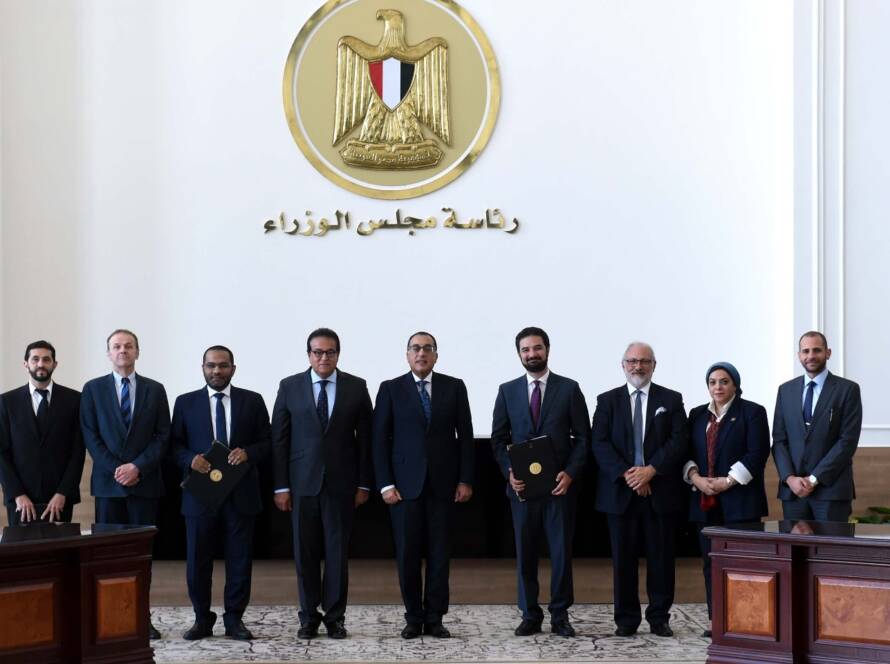How an operator fund hopes to harmonize Egypt’s healthcare industry: Enterprise sits down with Elevate’s Tarek Moharram. Investment banking outfit Elevate Capital’s fund, Elevate Healthcare, is one of the region’s largest specialist funds of its kind. The fund is looking to capitalize on its managers’ expertise in strategic management in healthcare to help fill the gaps in Egypt’s healthcare industry, accelerate the adoption of disruptive technologies, and introduce a more synergetic approach to the industry that can see patients receive affordable, end-to-end healthcare services.
The fund, which has a target size of USD 380 mn, aims to invest in verticals spanning hospitals, pharma, medical education and healthtech in Egypt and sub-Saharan Africa. The fund is looking at a USD 150 mn first close, of which USD 75 mn has already been raised, Moharram tells Enterprise. The remaining USD 75 mn have been secured as soft commitments, he says.
Here’s what’s different about this fund: Elevate Healthcare is the only operator fund in Africa. Operator funds are managed by people who have management experience in the sector in which they aim to invest, giving them direct knowledge of the growth cycles and funding stages of their businesses, Operator Collective writes. These funds tend to be much more involved in helping businesses scale up than regular investors or funds, it adds. Elevate Healthcare already has a private equity track record with “strategic management” of fast-growing diagnostics outfit Nile Scan & Labs Co, which delivered a four-year revenue CAGR of 38%.
The fund knows what the industry needs — and that’s primarily more specialized beds. The healthcare sector is suffering from a massive shortfall in hospital bed capacity, Moharram tells Enterprise. Egypt currently has 1.3 beds per 1k citizens, based on the latest data from 2019. That’s well below the 4.4 beds per 1k capita for most OECD countries during the same year. “The missing beds are not just generic hospital beds, it’s a specialized oncology bed for cancer treatment, or a neurosurgical bed or a cardiac bed,” Moharram said.
That’s why Elevate is focusing on building centers of excellence, rather than hospitals: Bringing international franchises that build specialized centers of excellence for specialties like cancer treatment and cardiovascular health is crucial to Elevate’s strategy. The fund has already signed technology transfer agreements with institutes like leading cancer research hospital Gustave Roussy and several other international institutions with different specializations, to help build branches of these leading institutes in Egypt under a single holding company it plans to establish. These agreements span five to seven years, and will see these facilities share know-how in everything from design and clinical processes to admin and training.
It’s not really consolidation as we know it: While Elevate Healthcare is still making acquisitions, it is mostly focusing on acquiring brownfield hospitals that it can then develop into centers of excellence, Moharram explained. “We don’t want to go through the full process of construction and licensing so we’d like to have a little head start,” he said. This diverts from the trend of consolidations that most healthcare players in Egypt have veered towards in the past years, which saw many healthcare players consolidating and directly acquiring other local clinics and hospitals. The healthcare sector accounted for the bulk of M&A activity in terms of value last year, with some USD 1.6 bn in M&A taking place, according to a report by Baker Mackenzie.
The logic is to invest in adding capacity, rather than consolidating existing capacity. “We want to add capacity to the system, so we’d rather be adding beds to the ecosystem than just consolidating the available beds,” Moharram said. This segment will account for the bulk (40%) of the fund’s investments, he said.
The rest of the breakdown: Some 30% of investments will go towards diagnostics (through expansions and acquisitions made via Nile Scan), while acquisitions and investments in ins. and primary healthcare clinics will represent the rest, Moharram said, adding that these allocations might change in the future.
breakdown: Some 30% of investments will go towards diagnostics (through expansions and acquisitions made via Nile Scan), while acquisitions and investments in ins. and primary healthcare clinics will represent the rest, Moharram said, adding that these allocations might change in the future.
By covering different verticals, Elevate is looking to streamline the healthcare experience for patients: “We want to create a one-stop shop, where we can offer diagnosis, imaging and pathology, and then the actual treatment through the best affiliations,” Moharram said. This helps make it easier for patients to seek treatment by providing a single point of referral, he noted.
Elevate is also looking at Egypt’s (relatively small) ins. industry: Potential amendments to the Ins. Act that could see the minimum paid-in capital requirement for ins. companies raised to EGP 250 mn from a current EGP 150 mn could trigger a wave of sell-offs and consolidations for smaller players, which Elevate hopes to be at the heart of, Moharram said. The amendments have already received a final nod from the Senate, and are now pending final approval from the House of Representatives.
But again, Elevate wants to leverage its management expertise instead of directly entering the market: “We want to be third-party administrators (TPA), where we manage the ins. process for certain companies and players,” Moharram explained. The fund is weeks away from acquiring a TPA to help it enter the market, he added. TPAs typically help streamline admin processes and can help make the ins. process more efficient.
A second fund could come soon: “We do plan to launch a second fund for healthcare after we’re sure that our first fund is well deployed and monitored to realize the best returns for our investors,” he said.
Elevate Capital also runs an impact-focused VC — and healthcare is at its core: “We’re eyeing 5-6 telehealth startups for investments,” Moharram said, adding that one of the startups caters to rural areas in Upper Egypt and Sinai. “Telehealth startups have seen adoption rates skyrocketing during the pandemic, but they are going through a post-covid slowdown now, though we believe this is temporary,” he said. Elevate has already operated and managed a telehealth startup, Paire Health, and has recently acquired a stake in Doxx by participating in a USD 1.5 mn seed round.
And once it’s time for an exit, IPOs are Elevate’s preferred flavor: “We’re believers in listing; that’s why we work on governance and digitization very early on,” Moharram said. “When an investment reaches a size where it’s listable, that’s definitely our preferred route.”
The company is also working on providing healthcare players with alternative financing solutions: Elevate recently landed approval in principle from the Financial Regulatory Authority to set up a financial leasing arm. “Growing companies need one of two things: Either equity or debt,” Moharram explained. “Given that equity partnerships can be tricky sometimes, we wanted a leasing arm to be able to make our offering more comprehensive,” he added. The leasing arm will focus on multiple impact-focused verticals, including healthcare.



